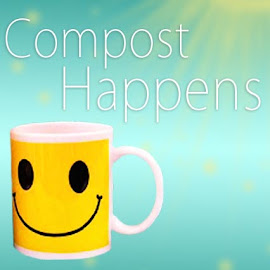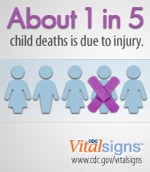
The books on this table are in consideration for the ninth grade curriculum in my local public schools. The books are on display to call for community input. The administrator in charge told me they're looking for "...balanced input" - meaning input from many, not just the loud and organized book-bashing groups.
Oops. My bias is showing.
I took a copy of the list and checked off those I'd read. Then I made some general observations. I logged on to Paperbackswap and requested a few titles that intrigued me, including those that had attracted objections in the past.
George Orwell's Animal Farm was a good book for its time, but not really suitable for today's ninth graders. Most high school freshmen don't have a background in the rise of the Soviet Union. This cleverly written allegory would be more effective if students read it after or concurrently with their world history classes.
The Body of Christopher Creed by Carol Plum-Ucci - I haven't read this yet. I ordered it. Parents have asked that it be removed from the curriculum, and I must see why. If the book is that powerful, it's probably fascinating.
J.D. Salinger's The Catcher in the Rye - A Trivia contest once asked for the name of Holden Caulfield's younger sister. I remember that she had an influence on Holden, that he felt protective toward her, but I couldn't remember her name (Phoebe). Very introspective, this book fits the curricular theme of "...the concept of the individual as well as interpersonal relationships."
Fahrenheit 451 - Scary. Ray Bradbury's genius shows in this book, one that the book burning folk need to read. Really.
The Latehomecomer: a Hmong Family Memoir - I have this on on my shelves and I haven't read it yet. Local buzz suggests it's an excellent book. Author Kao Kalia Yang spoke to local teachers a few years ago. She inspired me to read her work and to keep writing my own.
The Odyssey - Balancing contemporary books with classics is a challenge. Many Odyssey references, including the term "Odyssey" itself, have become part of today's language. The other night I heard someone on TV saying, "Even Scylla and Carybdis couldn't tear us apart." And how about those Sirens? I hope the decision makers keep The Odyssey in their collection.
Romeo and Juliet - It's not Shakespeare's best work, but it's very accessible to young adults. It's a good introduction to the world of Shakespeare, the language of the times, and a story that's been produced and reproduced in many incarnations.
Speak - Controversial because its main character was raped, this Laurie Halse Anderson book stimulates discussion and attracts criticism. It's a strong story showing the devastation of sexual assault and its aftermath, including the bullying that can go with reporting the incident. Readers will recognize the high school cliques and the stereotyped teachers in bits of humor that balance the seriousness.
Step from Heaven - A library media specialist recommended this to me several years ago. It's a powerful story of the immigrant experience in a family that struggles to earn their way toward the American Dream. The author uses an effective technique by writing in beginning English as the family moves, improving the language and grammar as the characters themselves learn, grow, and assimilate.
I noticed a few generalizations as I looked up the titles under consideration. The suggestions cover several perspectives of WWII: the nonfiction Hitler Youth by Susan Campbell Bartoletti, Slavomir Rawicz' The Long Walk: A True Story of a Trek to Freedom, The Book Thief by Marcus Zusak, and Elie Wiesel's Night expose readers to multiple perspectives on a single historical time period.
There is an attempt to promote diverse voices through memoirs and realistic fiction. A Long Way Gone: Memoir of a Boy Soldier by Ishmael Beah chronicles a world our American teens can only imagine - if they're aware of it at all. Adeline Yen Mah's Falling Leaves shares another world as well: the Chinese culture where women are not valued and can suffer abuse for just being female. Works by Native American Sherman Alexie, Hispanic author Sandra Cisneros, and Hmong writer Kao Kalia Yang provide many varied viewpoints for students to explore.
And isn't that what we want as teachers, parents, and role models? For our children to explore, thoughtfully consider various perspectives, and develop informed opinions? Censorship in any form interferes with the evolution of open-minded readers.
Maybe that's why the closed-minded book critics continue to fight.
Labels: action, So many books: So little time, teachers live at school

 Stumble It!
Stumble It!


 Stumble It!
Stumble It!




4 Comments:
What slays me is how Shakespeare is totally revered by the book-banners--the opening scene is a play on words about men's "weapons" and where they plan to "thrust" them!
"And isn't that what we want as teachers, parents, and role models? For our children to explore, thoughtfully consider various perspectives, and develop informed opinions? Censorship in any form interferes with the evolution of open-minded readers."
Truer words were never spoken.
"Censorship in any form interferes with the evolution of open-minded readers." "Truer words were never spoken."
True.
However, keeping children from inappropriate material is not censorship. Rather, it is legal, thanks to the US Supreme Court in Board of Education v. Pico, and is compliant with school selection policy, thanks to the American Library Association.
Pico: Board of Education v. Pico, 457 U.S. 853 1982
ALA: Marking 25 Years of Banned Books Week: An Interview with Judith Krug
Besides, the last book banned in the USA was about half a century ago.
Fanny Hill: Banned Book Favorites: Fanny Hill (Reprise)
Safe Libraries: Parents in our community are attempting to ban certain books from the school curriculum.
If they want to exempt their own child from reading the titles, they have that right. They do not, however, have the right to prevent all students from reading certain books because of a small group of narrow-minded people.
Post a Comment
<< Home